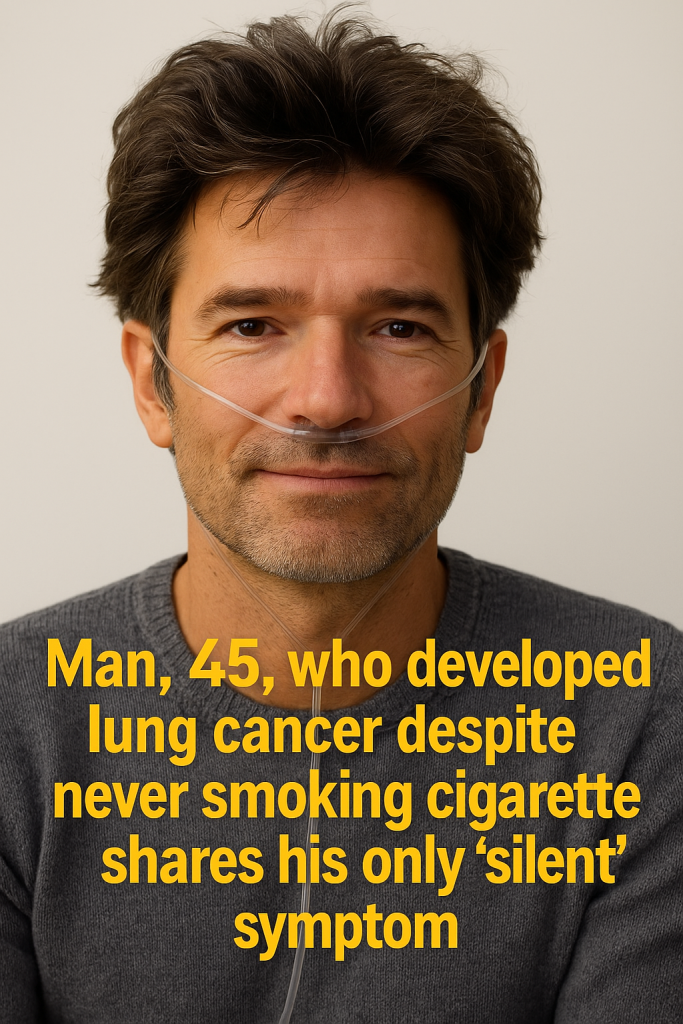A 45-year-old man, who led a highly active lifestyle and had never smoked a cigarette, recently shared the silent symptom that preceded his lung cancer diagnosis, shedding light on a disease often associated only with smoking.
This case echoes a growing awareness that lung cancer can affect non-smokers, and the early signs might be subtle or easily overlooked. Despite being physically fit and energetic, the man’s experience underscores the importance of recognizing unusual changes in the body—even when they seem minor.
Leading an active lifestyle did not prevent the diagnosis. The man, described as extremely active, reportedly noticed only one subtle symptom before discovering he had lung cancer in early 2024. He emphasizes that this singular warning sign was not a persistent cough, chest pain, or breathlessness—all symptoms commonly associated with lung illness—but something more inconspicuous.
He revealed that the only symptom he experienced was a persistent, unexplained fatigue. While fatigue is frequently dismissed as the byproduct of a busy schedule or stress, in this instance, it was a key indication of an underlying medical issue. Unlike typical tiredness that improves with rest, his fatigue lingered and gradually worsened, prompting medical investigation.
Doctors diagnosed him with lung cancer despite his lack of traditional risk factors such as smoking or exposure to harmful substances like asbestos. This highlights a troubling truth: lung cancer in non-smokers accounts for approximately 10-20% of all lung cancer cases globally, and its incidence is reportedly rising.
Medical experts note that lung cancer in non-smokers often presents differently and may be driven by genetic factors, environmental impacts like air pollution, or secondhand smoke exposure. Because many non-smokers do not perceive themselves at risk, diagnosis can come late, reducing treatment options and survival chances.
The man’s story brings urgency to the call for increased public awareness about lung cancer symptoms beyond the common cough or chest discomfort. “I thought, since I never smoked, I couldn’t get lung cancer,” he said. “The fatigue felt normal at first, but it was relentless. If I hadn’t pushed for tests, I might have found out too late.”
Health professionals recommend that individuals seek medical advice if they experience persistent fatigue, unexplained weight loss, shortness of breath, or unexplained chest discomfort, even if they have no history of smoking. Early detection remains critical to improving outcomes in lung cancer.
In addition to traditional imaging and biopsy, new molecular and genetic testing techniques are improving the ability to diagnose lung cancer in non-smokers swiftly and tailor treatment protocols accordingly.
This case adds to a growing body of evidence demanding a broader perspective on lung cancer risk. Public health campaigns and clinical guidelines are increasingly advocating for vigilance regardless of smoking history, encouraging people to listen to their bodies and seek timely medical attention when subtle symptoms arise.
As lung cancer continues to claim lives worldwide, stories like this 45-year-old man’s remind us that awareness, early detection, and swift action can save lives—even in those who seem least likely to be affected.



